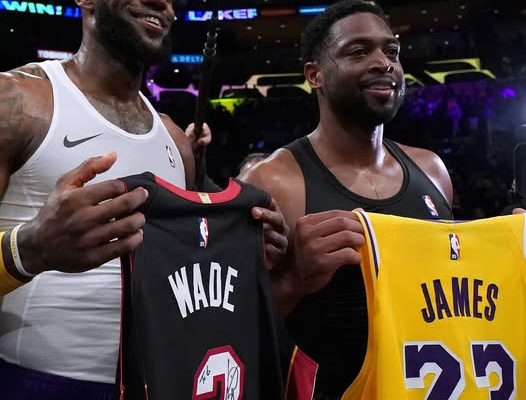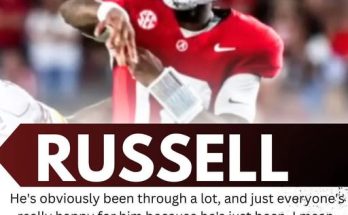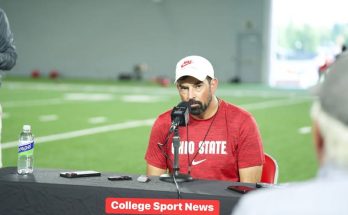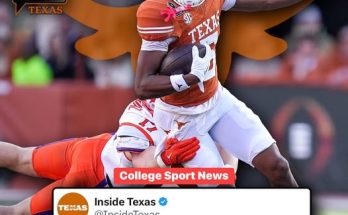The air inside the Crypto.com Arena, usually buzzing with the electric energy of a Lakers game, has grown noticeably thick with unspoken tension. It’s a tension that has nothing to do with a tight fourth quarter or a crucial playoff push, but rather with a father’s legendary influence and a son’s burgeoning, yet challenging, journey. Reports have been swirling, gaining traction from the hushed tones of team insiders to the bold proclamations of sports media, that LeBron James is “furious.” The source of this ire? His son, Bronny James, a second-year guard, has reportedly been left out of the Lakers’ primary rotation. This situation isn’t just a minor blip in the vast landscape of an NBA season; it’s a seismic event, sparking internal strife and fueling widespread speculation about the Lakers’ immediate future, their long-term dynamics, and the very nature of coaching decisions under the immense shadow of a living legend.
To understand the depth of this reported “fury,” one must first acknowledge the unprecedented nature of the James father-son dynamic in the NBA. LeBron James, an icon whose name is etched into the very fabric of basketball history, has openly expressed his dream of playing alongside his son in the league. This wasn’t just a fleeting wish; it became a tangible goal, a narrative thread woven into the latter stages of his illustrious career. The Lakers, in a move widely perceived as a strategic play to appease their superstar and perhaps extend his stay in Los Angeles, drafted Bronny in the second round of the 2024 NBA Draft. While the organization publicly maintained that Bronny was drafted on his own merit and potential, the underlying motivation was an open secret. The allure of the “father-son duo” playing together was simply too strong to ignore, promising a marketing bonanza and a fairytale ending to LeBron’s story.
Bronny’s rookie season was, predictably, a mixed bag. He showed flashes of the defensive tenacity and court vision that scouts had praised, particularly in the G-League, where he saw more consistent minutes and put up respectable numbers. There were moments in Summer League and scattered regular-season appearances where his maturity and basketball IQ shone through. However, his offensive game, especially his shooting, remained raw. He averaged a modest 2.3 points, 0.7 rebounds, and 0.8 assists in limited NBA action, shooting 31.3% from the field and 28.1% from three. These numbers, while not disastrous for a second-round pick, certainly didn’t scream “immediate impact player.” The unspoken expectation, however, was that his development would be carefully nurtured, perhaps even accelerated, given his unique familial ties.
Now, as the new season progresses, it seems the coaching staff, under the guidance of head coach JJ Redick – a fascinating hire in himself, given his close ties to LeBron and lack of prior head coaching experience – has opted for a rotation that does not prominently feature Bronny. This decision, seemingly based on current performance and established team chemistry, has reportedly ignited a firestorm behind the scenes. LeBron, known for his intense competitiveness and fierce loyalty, is believed to view this as a personal slight, an undermining of the unspoken agreement that brought Bronny to the Lakers and, by extension, perhaps influenced LeBron’s own decision to opt into his massive 2025-26 player option.
The implications of this reported tension are far-reaching and multifaceted, touching upon the very core of NBA team management, player empowerment, and the delicate balance between winning and fulfilling individual desires.
Firstly, let’s delve into the impact on team dynamics and locker room chemistry. When a player of LeBron James’s stature, a bonafide NBA legend and a de facto general manager in many senses, expresses dissatisfaction, it ripples through the entire organization. Younger players, many of whom grew up idolizing LeBron, may feel caught in the crossfire. Veterans, accustomed to LeBron’s commanding presence, might find themselves navigating a new, more volatile emotional landscape. Will other players feel compelled to speak up for Bronny, or will they silently align with the coaching staff’s decisions, fearing retribution or disruption? This kind of internal tension can be a cancerous force, eroding trust and creating factions within the locker room. The delicate ecosystem of a championship-contending team relies on cohesion and a shared vision; any perceived schism, especially one involving the team’s undeniable leader, can derail even the most promising seasons. Players understand that minutes are earned, but when the son of the team’s most influential player is on the bench, it introduces a layer of complexity that transcends traditional meritocracy. This isn’t to say Bronny isn’t working hard or that he doesn’t have potential, but the lens through which his playing time is viewed is inherently different from that of any other player.
Secondly, the situation shines a harsh spotlight on coaching decisions and the authority of the head coach. JJ Redick’s appointment was met with both excitement and skepticism. His deep basketball intellect and communication skills were lauded, but his lack of coaching experience at any level was a significant question mark. Many saw him as a “LeBron pick,” a coach who would be amenable to LeBron’s influence. If these reports of LeBron’s fury are true, it presents Redick with an immediate and monumental challenge to his authority. Can he, as a rookie head coach, stand firm on his decisions, prioritizing the team’s success and the development of his young players based on pure merit, even if it means alienating the team’s biggest star? Or will he feel pressured to bend to LeBron’s will, potentially sacrificing his coaching integrity and the trust of other players who expect a level playing field? This is a crucible for any coach, let alone one in his inaugural season, and his handling of this delicate situation will define his tenure and potentially his entire coaching career. The autonomy of the coaching staff is paramount for a functional team, and if that autonomy is perceived to be compromised, it undermines the entire hierarchical structure.
Thirdly, this saga opens up a wider discussion about player empowerment and the blurring lines of front office influence. LeBron James has, throughout his career, wielded immense power, often acting as a player-coach-GM. His move to the Lakers was, in part, predicated on a level of control and input that few, if any, other players in NBA history have enjoyed. The drafting of Bronny was seen by many as the ultimate manifestation of this power. Now, with Bronny’s playing time being a point of contention, it begs the question: how far does player empowerment extend? Does it encompass dictating personnel decisions, including playing time for family members, even if it seemingly conflicts with the team’s immediate competitive interests? This isn’t an isolated incident in the NBA; star players often have a say in roster construction. However, the father-son dynamic adds a unique, almost unprecedented, wrinkle to this established norm. It challenges the traditional roles within an organization and forces a re-evaluation of where the true power lies.
Fourthly, let’s consider the long-term future of the Lakers franchise. LeBron James is 41 years old and, while still remarkably productive, his career is undeniably closer to its end than its beginning. He opted into his $52 million player option for 2026, but his agent, Rich Paul, has made cryptic statements hinting at a desire for a “realistic chance of winning it all,” suggesting that LeBron’s loyalty to the Lakers is contingent on their ability to contend. If this internal tension escalates and remains unresolved, it could very well hasten LeBron’s departure. A superstar of his caliber, even at this stage of his career, would still command significant trade interest, especially from teams looking for a final, impactful push. The Lakers would then be faced with a monumental decision: appease LeBron and potentially compromise team-building principles, or stand firm and risk losing their biggest draw, potentially forcing a more drastic rebuild. The specter of LeBron leaving, especially if it’s due to a perceived slight regarding his son, would be a devastating blow to the franchise and a public relations nightmare. The carefully constructed narrative of the “father-son duo” in purple and gold would unravel, leaving behind a messy legacy.
Beyond the immediate team implications, there’s an educational component to this situation, particularly regarding the psychological impact of parental expectations on young athletes. Bronny James has lived his entire life in the shadow of perhaps the greatest basketball player of all time. This is an immense burden, unlike almost any other in professional sports. Every move he makes, every shot he takes, every minute he plays (or doesn’t play) is scrutinized through the prism of his father’s unparalleled career. While LeBron’s desire to play with his son is understandable and even heartwarming on a personal level, it has undeniably placed an extraordinary amount of pressure on Bronny.
The concept of “living vicariously” through one’s child is a well-documented phenomenon in sports psychology. Parents, sometimes unconsciously, transfer their own unfulfilled ambitions or desires onto their children, creating immense pressure to succeed. While LeBron’s intentions are undoubtedly rooted in love and support, his public pronouncements and reported private reactions can inadvertently intensify this pressure on Bronny. A young athlete needs space to develop, to make mistakes, to find their own identity in the sport. When a parent, especially one with LeBron’s influence, is reportedly “furious” over playing time, it sends a clear message to the child: your performance and playing status are inextricably linked to my happiness and influence. This can lead to increased anxiety, a fear of failure, and a feeling that their self-worth is tied to their on-court performance, rather than their inherent value as an individual.
Furthermore, it raises questions about developmental pathways in professional sports. Bronny’s journey, while unique, mirrors aspects of many young athletes whose parents were highly successful. The path to the NBA is arduous and requires immense dedication, skill, and a touch of luck. For Bronny, a second-round pick, his development would typically involve significant time in the G-League, honing his skills, gaining confidence, and working his way into an NBA rotation. The expectation that he should immediately be a rotation player for a contending team, simply because of his lineage, is unrealistic and potentially detrimental to his long-term growth. True development often occurs away from the brightest spotlights, through consistent reps and the freedom to experiment without the suffocating weight of external expectations. If the coaching staff believes that G-League assignments or limited NBA minutes are what’s best for Bronny’s development, but that decision clashes with his father’s desires, it creates a problematic tension between individual player growth and the overarching team goals, especially when parental influence is at play.
The speculation about the team’s future dynamics extends beyond just LeBron and Bronny. What message does this send to other players, particularly young ones, who are also vying for rotation spots? If a player’s perceived influence, rather than their on-court performance, becomes a factor in playing time decisions, it can foster resentment and a sense of unfairness. This undermines the meritocratic principles that are supposed to govern professional sports. Players want to know that their hard work and talent will be rewarded, and that political considerations won’t supersede basketball decisions. If that trust is broken, it can be incredibly difficult to rebuild.
The Lakers’ front office, under General Manager Rob Pelinka, now faces a monumental task. They have to navigate the present, attempting to maximize the remaining years of LeBron’s unparalleled career, while simultaneously planning for a future that, by all indications, will not include him. The Bronny situation complicates this immensely. Do they prioritize short-term peace with LeBron, potentially at the cost of long-term roster development and coaching autonomy? Or do they make hard basketball decisions, risking LeBron’s alienation and an earlier-than-desired departure? This tightrope walk is fraught with peril. The Lakers have always been a franchise built on star power, but even for them, managing this unique father-son dynamic, especially when it spills into reported internal discord, is uncharted territory.
Ultimately, this situation is a powerful case study in the complexities of professional sports at the highest level. It’s a reminder that even the most celebrated athletes are human, with personal aspirations and family allegiances. It underscores the immense pressure on young players who enter the league with famous last names. And it highlights the delicate dance between coaching authority, front office strategy, and the undeniable influence of superstar power. Whether this reported “fury” leads to an amicable resolution, a seismic trade, or a quiet, simmering resentment that eventually boils over, it will undoubtedly leave an indelible mark on the Lakers’ season and on the fascinating, evolving narrative of LeBron and Bronny James in the NBA. The story is far from over, and its twists and turns will provide valuable lessons for aspiring athletes, coaches, and sports executives alike on the intricate, often messy, human element that underpins the glitz and glamour of professional basketball. The ball is now, quite literally, in everyone’s court, and the world watches to see how the Lakers will navigate this unprecedented challenge.



